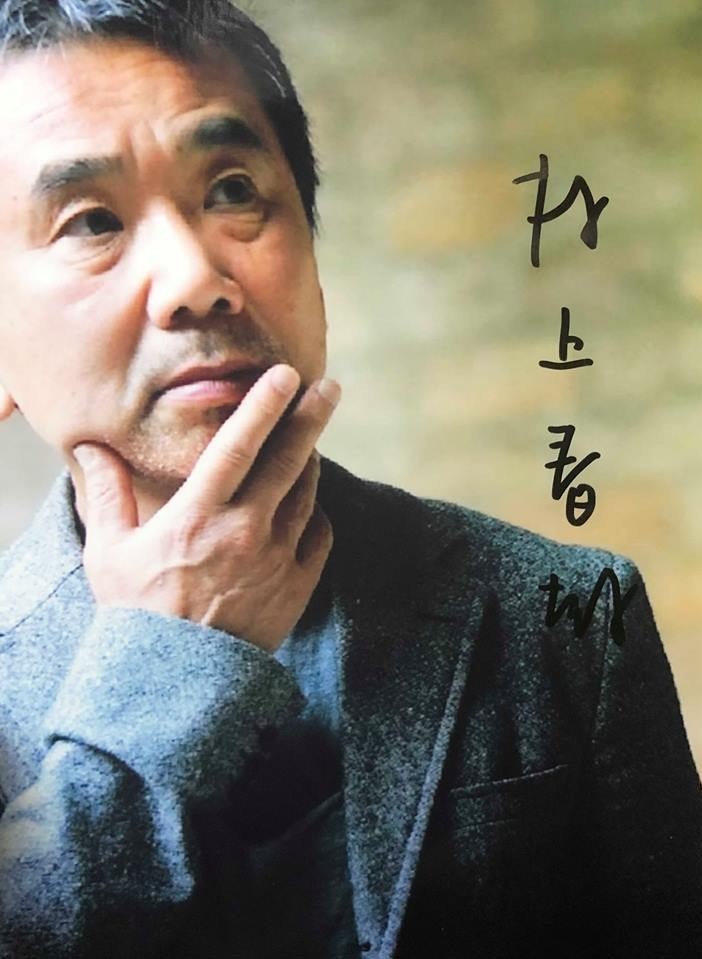Haruki Murakami’s Five Favorite Books

Image bySociety for Culture, Art and International Cooperation Adligat, via Wikimedia Commons
You could say that Haruki Murakami is a Japanese writer. And given that he was born in Japan to Japanese parents, grew up in Japan, and lives in Japan still today, you’d have geography, culture, and biology on your side. Yet Alfred Birnbaum, one of Murakami’s own English translators, has called him “an American writer who happens to write in Japanese.” To understand how this could be requires a consideration of not just Murakami’s writing, but the writers whose books inspired him. Take the hard-boiled novelist Raymond Chandler, whose The Long Goodbye appears on the list of Murakami’s five favorite books just posted at Literary Hub.
“I have translated all the novels of Raymond Chandler,” Murakami once said. “I like his style so much. I have read The Long Goodbye five or six times.” He must have read it for the first time in Kobe, where he grew up in the 1950s and 60s, and whose bookstores offered an abundance of pulp fiction left behind by departing U.S. military personnel. Chandler’s would have been one of the literary voices he internalized before sitting down to write his own first novel, Hear the Wind Sing, using the highly unusual method of beginning the story in English, or what English he commanded. He then translated this Philip Marlovian experiment back into Japanese, beginning a literary career of four decades and counting.
A translator when not writing his own fiction, Murakami has also rendered in his native language F. Scott Fitzgerald’s The Great Gatsby, perhaps the most symbolically American novel of them all. Literary Hub quotes him as saying that “had it not been for Fitzgerald’s novel, I would not be writing the kind of literature I am today (indeed, it is possible that I would not be writing at all, although that is neither here or there).” His prose is also the medium through which many Japanese readers have experienced J.D. Salinger’s The Catcher in the Rye: “I enjoyed it when I was seventeen, so I decided to translate it. I remembered it as being funny, but it’s dark and strong. I must have been disturbed when I was young.”
None of Murakami’s top five books are Japanese, but not all of them American. The list also includes Franz Kafka’sThe Castle, another book he encountered as a Kobe teenager: “It gave me a tremendous shock. The world Kafka described in that book was so real and so unreal at the same time that my heart and soul seemed torn into two pieces.” Though the two writers have their stylistic differences, “so real and so unreal at the same time” could just as well describe whatever genre it is that Murakami has invented and continues to advance today. “Most writers get weaker and weaker as they age,” he once said, “but Dostoevsky didn’t. He kept getting bigger and greater. He wrote The Brothers Karamazov in his late fifties.” Murakami is now in his early seventies, but who — even among those familiar with his inspirations — would dare predict what sort of novel he’ll give us next?
via Literary Hub
Related content:
Haruki Murakami Translates The Great Gatsby, the Novel That Influenced Him Most
David Foster Wallace’s Surprising List of His 10 Favorite Books, from C.S. Lewis to Tom Clancy
Stephen King Creates a List of His 10 Favorite Novels
Philip Roth (RIP) Creates a List of the 15 Books That Influenced Him Most
The Books Samuel Beckett Read and Really Liked (1941-1956)
Based in Seoul, Colin Marshall writes and broadcasts on cities, language, and culture. His projects include the Substack newsletter Books on Cities, the book The Stateless City: a Walk through 21st-Century Los Angeles and the video series The City in Cinema. Follow him on Twitter at @colinmarshall or on Facebook.
from Art Life Culture https://ift.tt/XfsrLB2
via IFTTT
Comments
Post a Comment